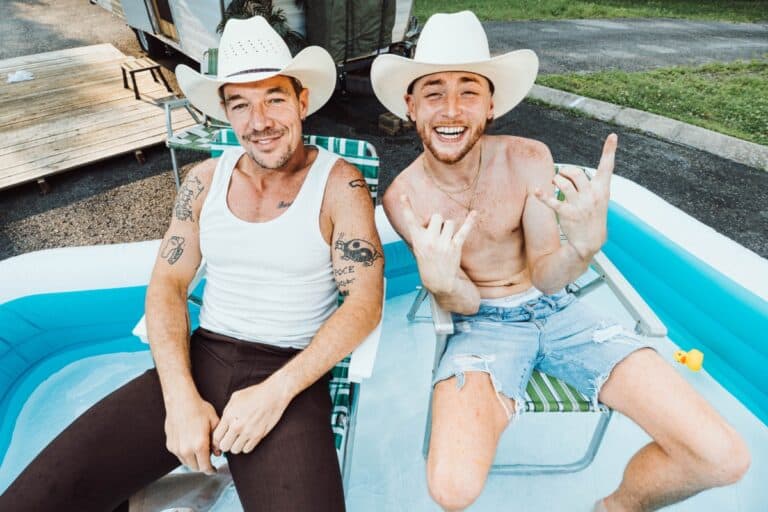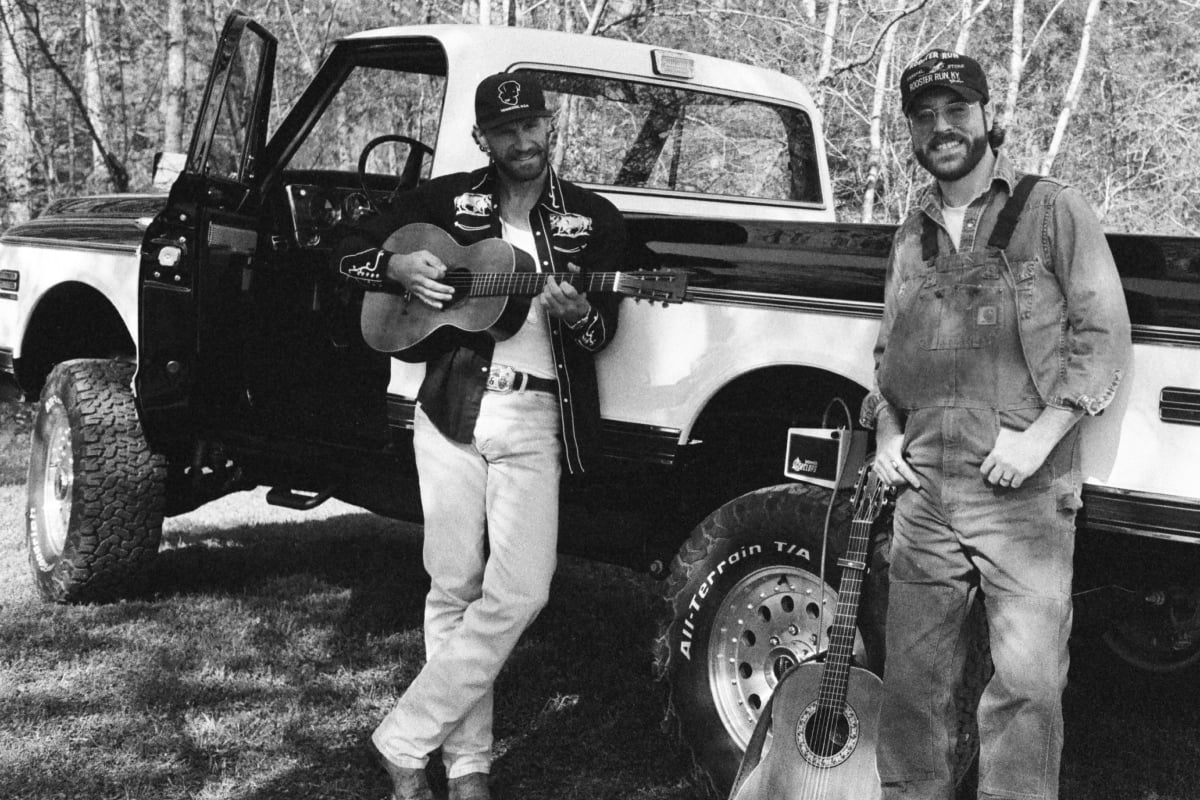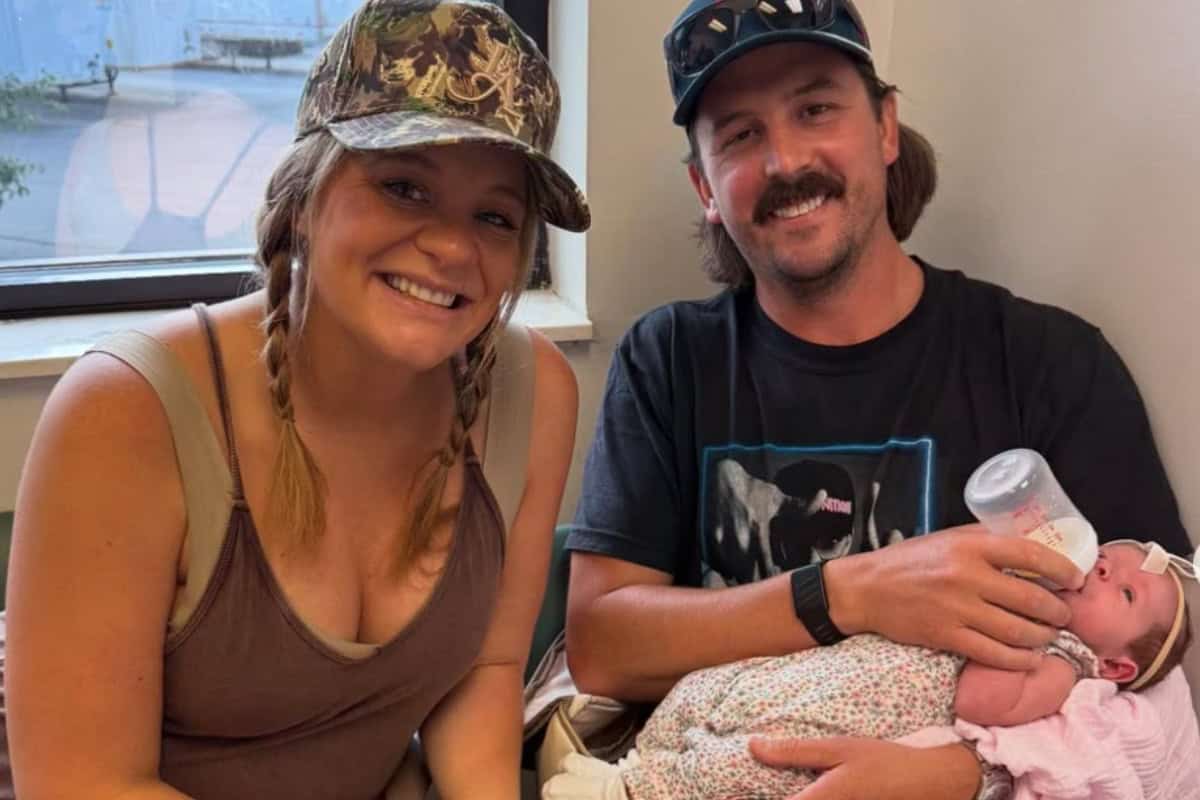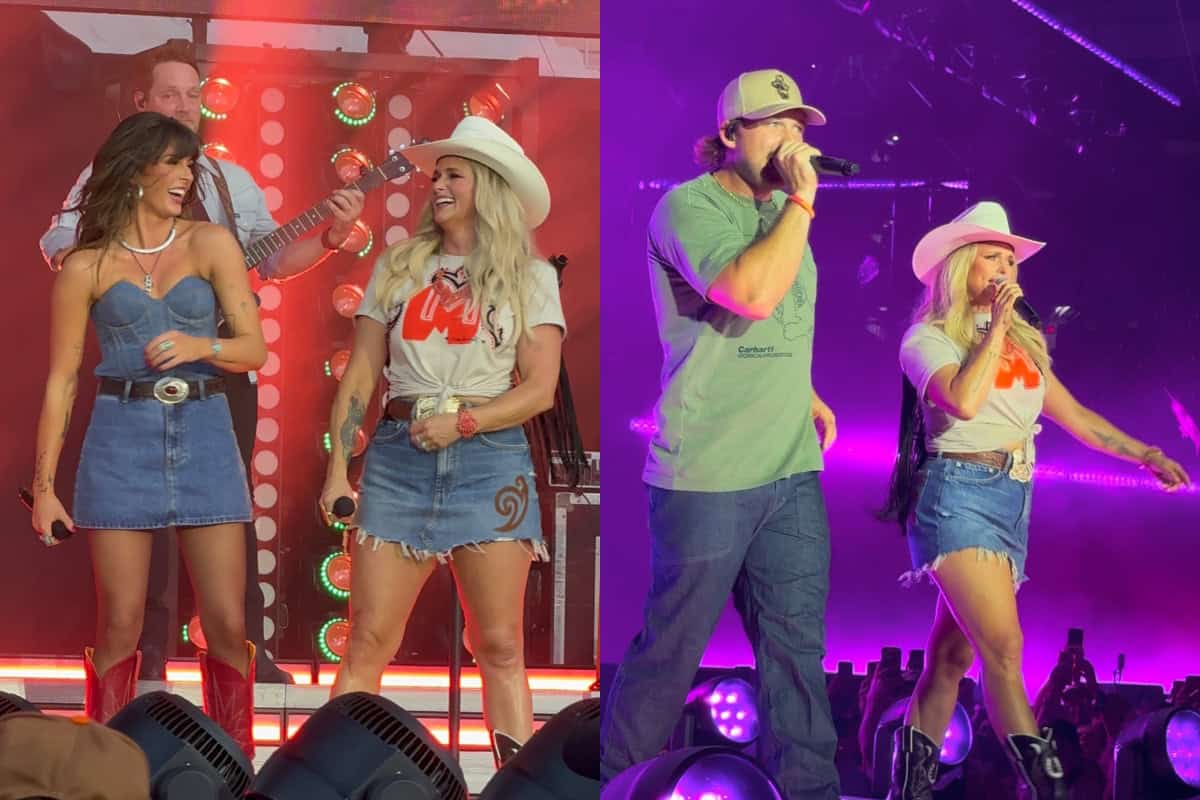With seven of his eleven albums certified Platinum or higher, nineteen Top 10 hits, five number ones, and two GRAMMY Awards, you could say that Travis Tritt sure knows how to make great country music that resonates with fans across the globe. Known for his chart-topping hits such as “Anymore” “Here’s A Quarter (Call Someone Who Cares)” and “It’s A Great Day To Be Alive,” the country superstar sure knows how to write and sing a hit song.
The country superstar is gearing up to release his brand new album, Set In Stone, in May 2021 via Big Noise Music Group, marking his first new music in over a decade. The 11-track project (8 of which were co-written by Tritt) was produced by Dave Cobb (Chris Stapleton) and will be his first new album since his 2007 record, The Storm, and will include his latest single “Smoke In A Bar.” Tritt explained the album as “getting back to a no-frills classic outlaw-country sound.”
Additionally, Tritt recently joined Diamond Resorts star-studded list of celebrity ambassadors, joining Toby Keith, Cole Swindell, Lee Brice, Colt Ford and more.
“Travis Tritt is a legendary talent in the country music industry,” said Mike Flaskey, Chief Executive Officer of Diamond Resorts. “We are thrilled to have him join our roster of Diamond Celebrity ambassadors and perform exclusive shows for our members. Our Diamond Live concert series brings once-in-a-lifetime vacation experiences to members and invited guests, and Tritt will help us continue to bring these top-notch experiences to members.”
Recently, we got the opportunity to sit down and chat with Tritt about his ambassadorship with Diamond Resorts, his upcoming album, Set In Stone, his friendship with Waylon Jennings and much more. You can read our full Q&A below.
So, I wanted to start by chatting with you about your ambassadorship with Diamond Resorts that started back in August, 2020. Could you tell us a little bit about your relationship with Diamond Resorts and how that came about maybe?
Well, yeah. I was very, very excited when I first heard that there might be a possibility to become an ambassador for Diamond Resorts. And I had talked with a couple other people that had worked as ambassadors with Diamond Resorts and other people that had been associated with them over the years. And everybody that I talked to told me what a great organization it was, what a great group of people they were. And I found out very quickly that they were exactly right.
I met with Mike Flaskey and several other people early on. And my introduction to the Diamond Resorts family was just about as good as it could possibly have been. And just to get a chance to go out and perform in those settings where it’s only for the Diamond Resorts’ members, and there’s so many of those members that they love my kind of music. They’ve been fans. A lot of them have been fans for many, many years. So I just thought it was a great matchup.
That’s awesome, You actually performed your first show with them back in December. And you have two more coming up in June, in Orlando and Virginia Beach. What are you most looking forward to about those events? Are they also going to be stripped down performances, with just you and your acoustic guitar?
I’m not exactly sure about each one of those. I know that at least one of them is going to be a solo acoustic performance. I’m not sure about both of them. I would hope that I would have an opportunity at some point to also get a chance to do some band dates with Diamond Resorts, because I love playing music anytime I get an opportunity, but over the years, on a normal year, I would do about 130 shows a year, and 95 of those shows or more would be with my band.
So, Diamond Resorts and you guys partnered with a video series, Moments With Diamond, and you talked about meeting your country music heroes, like Charlie Daniels, Waylon Jennings, Johnny Cash, but how does it feel now to be a country music hero to so many people that look up to you as a hero?
Well, I really didn’t even think about my effect or my influence on other people until I started writing for this new album, Set in Stone. Dave Cobb, who’s produced the album for me, he immediately, when we started talking about doing the album, he wanted to set me up with some of his favorite songwriters, a lot of really young guys and gals that he just loves writing with and loves having to write material for whoever he’s producing.
So I went in with a lot of these young writers that I’d never written with before. And the one common denominator that they all told me in every session was how much my music had influenced them when they were younger and how much they grew up on my music. And some more than others, but all of them had that experience, and they shared it with me. And it really, it just kind of reminded me of how much I was influenced by my heroes when I was growing up, and how much it meant to me when I got an opportunity to meet those people and work with them, how much it meant if they took just a little bit of extra time to just give me some advice or some pointers or let me know how much they enjoyed my music or appreciated that I did the type of music that I did.
And so I’ve always tried to pay that forward anytime I get an opportunity. I don’t want to ever give advice that’s not asked for, but anytime any young artist or young songwriter asks me for my advice, I always consider it to be an honor to give it and try to help them the same way that so many people helped me when I was first getting started.
That’s a great answer. So last week you actually paid tribute to one of those heroes during your Opry performance with Chris Janson performing a Waylon Jennings song. What does he mean to you and how has he influenced your career?
Waylon Jennings had a lot to do with some of the songs that I wrote on this particular album. The song that starts it off is called Stand Your Ground, the first song on this new album. And it’s a song about a conversation that took place between Waylon Jennings and I the first time I ever met him.
At that particular point, I was a new artist, a young artist, and I had several songs that had been big, big records right off the bat. And then I released a song called “Put Some Drive in Your Country” as my fourth single. And it had a lot of southern rock guitars. It was inspired by my love for that type of music, the Allman Brothers, Leonard Skinner, Marshall Tucker, people like that. And for whatever reason, that was not allowed at that particular time. And it sounds strange to say it nowadays because pretty much anything’s allowed, but back in those days, if you weren’t doing straight ahead traditional country all the time, every time, then country music had a tendency to want to reject you.
And as soon as that single came out, man, I started catching all kind of flack from not only record labels, but I started catching it from radio program directors and disc jockeys and people that wrote for country music magazines. And they started saying, “Well, this guy, he’s different and he’s kind of a renegade, and he’s a rebel. And he must be hard to get along with.” And then they hit me with the one that really kind of hurt the most. They said, “Well, this guy, he’s just an outlaw.”
And to be honest, it was starting to get to me a little bit. I was starting to really internalize all these different comments and all these negative things that were being said. And I continued with that sort of depressed feeling until I met Waylon Jennings. And the first time I ever met Waylon Jennings, he sat me down in his dressing room and he said, “Listen, I’ve been hearing all these things they’ve been saying about you.” And he said, “I just want you to know that everything that they’re saying about you is exactly the things that they said about me and Willie Nelson and Johnny Cash and Hank Williams Jr. and David Allen Coe.” And he just went down the list.
And he said, “Just remember this, those people that work for those record labels and those people that work for those radio stations and program those radio stations,” he said, “they get their music for free. They don’t pay a dime for music.” He said, “The people that you should be concerned about are those hard working people that work hard, 40, 50, 60 hours a week to put food on the table for their families and put a roof over their heads. And those people are willing to spend a little bit of that money, that hard-earned money to buy your music every time you release something new. And those people are also willing to buy a concert ticket every time that you come close to their town.” And he said, “Those are the people that matter. And those are the only people that should ever matter.”
And I told that story to a couple of the songwriters that I was meeting with for the first time. And they said, “Man, we got to write that.” And so we wrote “Stand Your Ground” based on that early conversation that I had with Waylon Jennings. And he was just, he was another guy that, from the very beginning, if Waylon liked you, he let you know it. And he really kind of took me under his wing from the very beginning. I had an opportunity to know him very well and not only be friends with him, but get a lot of advice from him. And we did a lot of shows together and he really treated me almost like I was his son. And I’m extremely thankful for that to this day.
Yeah, actually was going to ask about that song, so thanks for filling us in on that one.
But on the topic of your new album, Set in Stone, that comes out this May, it’s your first new music in 13 years. Are you excited to finally have some new music out, and what can fans expect from that album?
I’m really looking forward to it. Man, I made a conscious decision about 12 years ago that I just wanted to focus on doing the best live performances that I possibly could. And I’m one of those artists that’s fortunate enough to have had a long list of hits in my catalog so that I can do a two hour show or longer and fill it completely front to back with nothing but hit songs.
And so I made that conscious decision a few years ago that I just wanted to focus on doing the best concerts that I could possibly do, and had pretty much stuck with that concept until about two years ago. I hired a new manager and he came to me and said, “You still got a lot of really good music in you. And I think you would be doing yourself a disservice and you’d be doing your fans a disservice if you didn’t release that music still in you.” And I thought about it and I thought he’s right. And then when the idea came about to actually get a chance to work with Dave Cobb in the studio and let him produce the album, that just was the icing on the cake for me.
And going back into the studio after that period of time of being out of it, I was a little bit, I was a little concerned. I had my worries. I had my doubts about it because a lot of things have changed in the past decade with how a lot of people record music. But I was very encouraged early on by Dave Cobb because he told me before we ever even started working on the record, he said, “Here’s how I do it.” He said, “I bring live musicians into the studio and they play the song live and we track it live.” And he said, “I try to get as many of your vocal in that live tracking session as I possibly can as well.”
Well, for me, that was going right back to exactly the way that I’ve done it since I first got started over 30 years ago, because that’s the way I’ve always recorded. So it made me feel very at home and very comfortable going back into the studio for the first time in over a decade.
And I was excited about the music that I had written for the album. I was excited about the songs that I didn’t write that we had found from other people, and excited about recording them. And now that the album is done, I’m extremely excited to get it out in front of an audience and see what the audience thinks about it because they’re the final determining factor anyway. They always have been. And they’re the ones that’ll let you know really quick whether you’re hitting the mark or whether you missed the target. So I’m looking forward to getting the music out in front of people and seeing what they have to say about it.
Well, you actually released you new song today, “Smoke in a Bar.” And that seems to be talking about some humbler times and returning to your traditional country roots. Could you tell us a little bit about that song?
Tim Montana was one of the writers on that song, and as soon as he wrote it, he sent me a text. He said, “Listen, man, I just wrote this new song I wanted you to hear.” And as soon as I heard it, it checked a lot of boxes for me. Because I’ve heard from people over the last 15 years about how they love a lot of the new music that’s coming out from a lot of the newer artists, but they also miss a lot of the connection to the roots of our music and the connection that people from my era, the music of the ’90s, we stayed very, very closely tied, in most cases, to our country music roots. I mean, we knew exactly who had inspired us and we tried to carry on some of those influences and show those influences every time that we did a record.
So I’ve heard a lot of people in the last 15 years say, “Man, I like a lot of the new stuff that’s coming out, but wouldn’t it be great if we could hear more of those great stories that country music has traditionally always told?” And then in the past year or so, with all the craziness that’s taken place in the world, where there’s so much divisiveness it seems and so much of a unsettling spirit that’s kind of consumed people, people seem to be more divided than they ever have been, and then there’s a lot of uncertainty with people based on the results of the pandemic and the lockdowns, so in the past year, I’ve heard a lot of people that have said to me, “Man, wouldn’t it be nice if we could go back to a simpler time when there wasn’t all this upheaval and there wasn’t so much distrust of one against the other? And we would love to just go back to a time that was a little bit more simple, when the world seemed to turn just a little bit slower.”
And so as soon as I heard ‘Smoke in a Bar,’ I thought, man, that’s exactly what the song is about. It’s talking about the nostalgia, and there’s a lot of people that live in this country and others too that I think have a lot of nostalgia for a simpler time and a time when they grew up when there wasn’t so much stress as there is today.
So once again, I think that’s great songwriting. Anytime you can, as a songwriter, you can capture the mood of a large swath of people and basically make them think that you’ve been reading their minds and reading their mail by the words that you write in a song, I think that’s always a winner. So I was very, very pleased that they let me record that song and I’m looking forward to seeing what people think about it.
So, on the topic of all that craziness happening in the world, especially over the last few weeks from racism to cancel culture, what’s your take on all of that stuff that’s going on?
Well, I really don’t want to get involved in the politics and stuff because I’ve never been a politician. I’m a musician. And as a musician, I always have said that the one thing that I never will do is use my stage for a place to state my political beliefs. I have beliefs. I have beliefs that are strong, but I’ve always felt that anytime an artist goes on their stage or goes on an awards show or whatever and starts talking about their political beliefs, I think they just turn people off people. That’s not why people buy concert tickets and it’s not why people tune into award shows. They just want to see their favorite artists doing the music.
And so I made a solemn vow to myself that I would never use my stage or never used an appearance on an award show to talk about my political beliefs. If you want to know what I think, you can follow me on any of my social media platforms and I occasionally will talk about what I think and how I feel about certain issues. But outside of that, I try to just stay with within my lane and just do the music. That’s the most important thing for me.
Yeah, Which is actually a really good thing because some artists just don’t know how to stay out of that stuff and just cause a little bit of more controversy than there needs to be now, especially with the current state of the world.
But everybody should feel free to address it however they want to, but for me personally, I think it’s all about just doing it in the music.
Thanks. So that’s all we have for you today. Thanks so much for taking the time to chat with us. I know you’re probably busy gearing up for the album and promoting the single, and I think even have a show tonight, right?
No, I don’t have a show tonight, but I do have a busy press day, yeah. But thank you for taking the time to talk to me. I really appreciate it.
For more information or a full list of Travis Tritt tour dates, visit his website TravisTritt.com and follow him on Twitter, Facebook, and Instagram.






